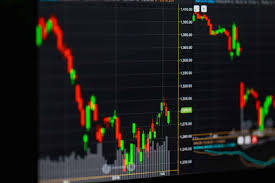
Understanding Forex Trading Brokers: Choosing the Right Partner for Your Trading Journey
In the world of Forex trading, brokers play a crucial role as intermediaries between traders and the forex market. Choosing the right Forex trading broker is vital for success in your trading journey. There are various factors to consider, including regulation, trading platforms, and spreads. To help you navigate the intricate landscape of Forex brokers, we will explore key factors to keep in mind when selecting your trading partner. You can get started with a reliable broker at forex trading broker ex-zar.com.
What is a Forex Trading Broker?
A Forex trading broker is a company or financial institution that provides traders with the necessary tools and platforms to trade currencies on the foreign exchange market. These brokers facilitate the trade by connecting buyers and sellers and often provide additional services such as market analysis, trading signals, and educational resources.
Types of Forex Brokers
Forex brokers can generally be classified into several categories, each offering different features and services:
1. Market Makers
Market Maker brokers create their liquidity by quoting both buy and sell prices for currency pairs. They often profit from the spread—the difference between the buy and sell price. This type of broker can be beneficial for new traders as they provide a stable trading environment.
2. ECN Brokers
Electronic Communication Network (ECN) brokers provide direct access to the market. They connect traders with other market participants, facilitating true market prices. This type of broker offers lower spreads and allows for faster execution of trades, making them a favored choice for experienced traders.
3. STP Brokers
Straight Through Processing (STP) brokers automatically route orders to liquidity providers. Unlike market makers, STP brokers don’t manipulate prices and usually offer tighter spreads. They are ideal for both beginner and advanced traders looking for a fast execution of orders.
4. DMA Brokers
Direct Market Access (DMA) brokers offer traders direct access to the order book of the market, providing visibility into the market depth and allowing more control over trades. This option is typically utilized by professional traders and institutions with high-frequency trading strategies.

Factors to Consider When Choosing a Forex Trading Broker
Selecting the right Forex broker goes beyond just picking a platform; there are several critical factors you should consider:
1. Regulation
Look for brokers that are regulated by reputable financial authorities. Regulation ensures that the broker adheres to certain standards and provides a level of protection for your funds. Some well-known regulators include the Financial Conduct Authority (FCA) in the UK, the Commodity Futures Trading Commission (CFTC) in the USA, and the Australian Securities and Investments Commission (ASIC).
2. Trading Platform
The trading platform is your gateway to the Forex market. Make sure the broker offers a user-friendly, stable, and feature-rich platform. Popular platforms include MetaTrader 4, MetaTrader 5, and proprietary platforms offered by the broker. Test the demo version to see if it suits your trading style.
3. Spreads and Commissions
Evaluate the cost of trading with different brokers. Some may offer tight spreads but charge high commissions, while others may have wider spreads but no commissions. Choose a broker that provides a transparent fee structure aligned with your trading strategy.
4. Customer Support
Good customer support can make a significant difference in your trading experience. Check if the broker offers multiple channels for support, including phone, email, and live chat. It is also beneficial to look for support available in your preferred language.
5. Deposit and Withdrawal Options
Look at the deposit and withdrawal policies of the broker. Ensure they offer convenient payment methods, including bank transfers, credit cards, and e-wallets. Additionally, review the fees and processing times associated with withdrawals.
The Importance of a Demo Account
Before committing real money, it’s advisable to open a demo account with your chosen broker. A demo account allows you to practice trading with virtual money and gain familiarity with the platform without the risk of losing real funds. This step is essential for developing your strategy and understanding the broker’s features.
Conclusion
Choosing the right Forex trading broker can significantly impact your trading journey. Remember to consider regulation, trading platforms, spreads, customer support, and deposit/withdrawal options carefully. Take your time to research, read reviews, and even try out demo accounts to find the ideal broker that meets your trading requirements. With the right partner by your side, you can enhance your trading experience and work towards achieving your financial goals.



